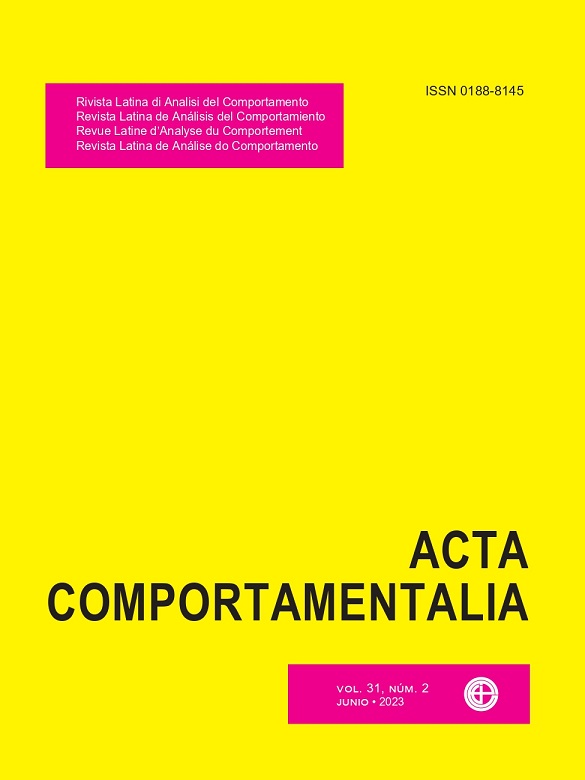Effects of the Korsan game on subtraction learning in preschoolers
DOI:
https://doi.org/10.32870/ac.v31i2.85835Keywords:
educational game functionality, digital games, subtraction operation, stimulus equivalence, childrenAbstract
Mathematical behavior has been understood as a network of symbolic relations between stimuli (e.g., dictated numeral, printed numeral, signs, quantities, etc.) and/ or between stimuli and responses, such as counting, solving operations etc. Researches aimed at developing effective strategies and procedures for the teaching of mathematical repertoires have demonstrated the relevance of variables such as: the position of the unknown quantity, the way of presenting the problem for the resolution of arithmetic problems, and the use of different teaching technologies, such as educational games. It is noteworthy that many researches on effective strategies and procedures for teaching mathematical repertoires focused on addition operations, which indicates the need for more research on subtraction operations. The present study investigated the effects of an adapted digital domino game on subtraction learning, based on the equivalence relations model. Additionally, the game’s usability and engagement were evaluated. The study was developed in pre-test, intervention, and probe. Three children aged between 5 and 6 participated in the study. In pre-tests, the resolution of subtraction operations with digits and scales was evaluated through an adapted board game. The digital domino game “Korsan” was used to teach the relations between numerals and dots (AB/BA), numerals and subtraction with digits (AC/CA), subtraction with digits and scales (CD/DC), as well as to test the relations between dots and subtraction with digits (BC/CB), numerals and subtraction with scales (AD/DA), and dots and subtraction with scales (BD/DB). Probes were applied to monitor changes in participants’ performances and a generalization test was applied at the end. To evaluate usability and engagement, researchers conducted a categorized record of participants’ behaviors during intervention sessions and programmed concurrent activities. Follow-up sessions were carried out at least 38 days after the end of the intervention. At the end of the procedure, all the participants presented an increase in the percentage of correctness in subtraction operations. Two children showed increase in the percentage of successes in addition operations, with the unknown in different positions. Usability problems were observed in the game interface and in phases involving scale operations. The results showed that the game proved to be a viable teaching resource, and attractive to participants, although engagement decreased throughout the study. This research aimed to broaden the scope of studies on educational games based on analytical-behavioral and contribute with proposals to improve the game “Korsan”.
Downloads
Downloads
Published
How to Cite
Issue
Section
License

<a rel="license" href="http://creativecommons.org/licenses/by-nc-sa/4.0/"><img alt="Licencia de Creative Commons" style="border-width:0" src="https://i.creativecommons.org/l/by-nc-sa/4.0/88x31.png" /></a><br />Este obra está bajo una <a rel="license" href="http://creativecommons.org/licenses/by-nc-sa/4.0/">licencia de Creative Commons Reconocimiento-NoComercial-CompartirIgual 4.0 Internacional</a>.






